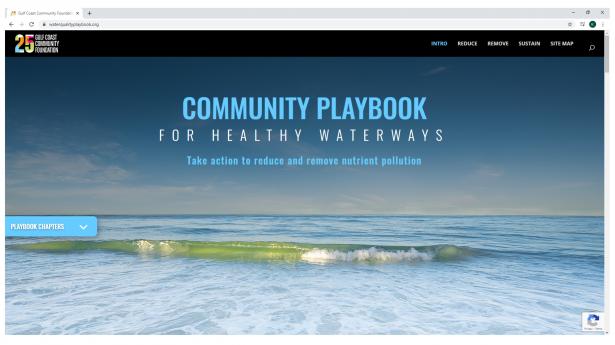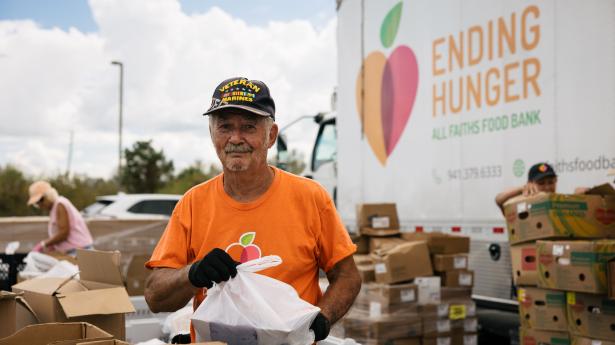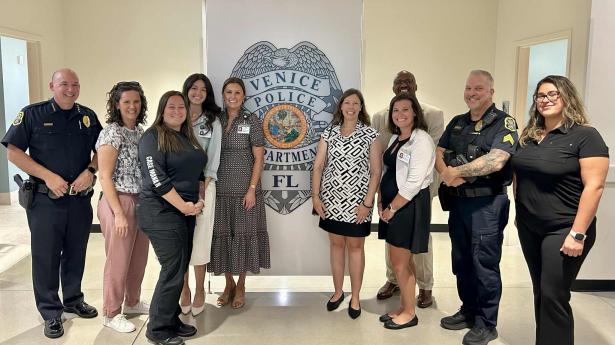
Gulf Coast Releases Groundbreaking 'Water Quality Playbook'
Gulf Coast Community Foundation has published a first-of-its-kind resource to spur and guide community-wide action to transform environmental water quality throughout the Sarasota County region.
The Community Playbook for Healthy Waterways is a comprehensive online manual of recommended activities to reduce and remove manmade nutrient pollution in the region’s waterways and sustain those improvements in the future. While the Playbook focuses on Sarasota County, the proposed activities can be adapted, transferred, and customized to other coastal Florida communities.
“Sarasota County’s economy and reputation depend on protecting and restoring our natural waters,” said Jon Thaxton, senior vice president of Gulf Coast Community Foundation, who chaired the Playbook initiative. “This Community Playbook for Healthy Waterways focuses, prioritizes, and coordinates critical activities we must undertake to realize our community’s vision for clean and healthy waters.”
A Resource for All
The Playbook integrates public policy, applied science, and community education to more effectively manage nutrient pollution, specifically nitrogen, in the region. The target audience includes leaders from municipal, county, and state governments and agencies, nonprofit environmental organizations, business and agriculture, philanthropic funders, and homeowner associations. “Everything we do on the land impacts our Bay and our creeks,” said Stevie Freeman-Montes, sustainability manager for the City of Sarasota. “Everybody has an intersection point into this resource.”

The Playbook’s 10 chapters comprise 43 recommended activities for improving regional water quality. Topics range from central wastewater management and stormwater system maintenance to fertilizer use and wetlands restoration. Each prescribed activity includes relevant information to catalyze first steps and foster full implementation, including current status, key actions, performance measures, recommended champions, and cost estimates.
The website is designed so users can access and organize its rich information in different ways, depending on their role and interest. “The strength of the Playbook is that it’s a ‘do list,’” said Sandy Gilbert, chairman/CEO of START (Solutions to Avoid Red Tide), a nonprofit environmental advocacy group. “The key now is for organizations like mine and the government and others to start doing the things in the list to improve water quality.”
The Playbook was also conceived to be a “living document” that will continue to be updated as progress is made on different activities.
A Collaboration, Years in the Making
According to Gulf Coast’s Thaxton, a former three-term Sarasota County Commissioner who is widely known for his conservation work, the Playbook aims to leverage and build on Sarasota County’s decades-long commitment to improving water quality. He cites pioneering efforts in fertilizer management, stormwater management, and seagrass restoration as examples of past collaborative successes. However, he points out that excess human-based nitrogen pollution, which has been entering Sarasota County waterways for generations, could soon push the ecosystem over a tipping point of impairment. “We have a unique opportunity to turn back the hands of time, in a sense, and correct mistakes of the past,” said Thaxton. “This Playbook is designed to create healthier waterways for a healthier economy, healthier lifestyles, and healthier wildlife and habitat.”
Thaxton, Freeman-Montes, Gilbert, and Ryan were among 10 members of a Steering Committee of regional experts and practitioners who developed the Playbook. The work group also included leaders from business and agriculture, a nonprofit land trust, and two national estuary programs. Principals from Sarasota-based consultants Shafer Consulting and Progressive Water Resources facilitated, researched, and wrote the Playbook.
“It’s really a broad perspective of concerned citizens and organizations in our community coming together in an effort to achieve a common goal,” said steering committee member Alan Jones, owner of Parrish-based Jones Potato Farm and a statewide agricultural leader. “At the end of the day, I would like to think that all of us want to leave the world a little bit better place than we found it.”



